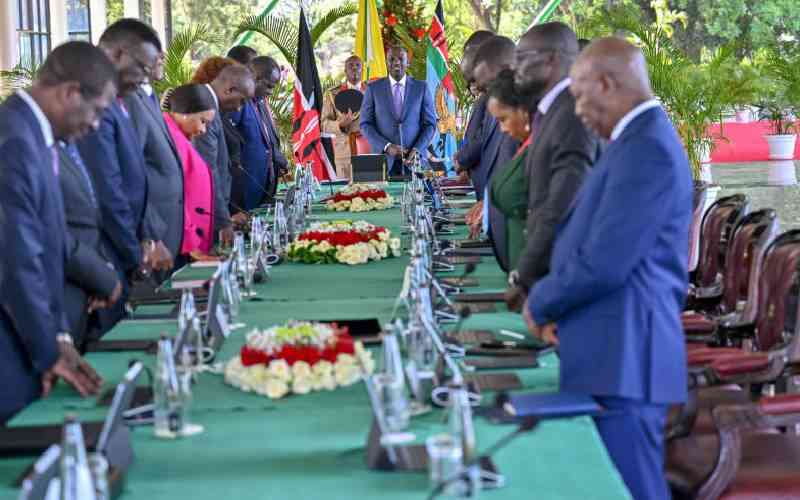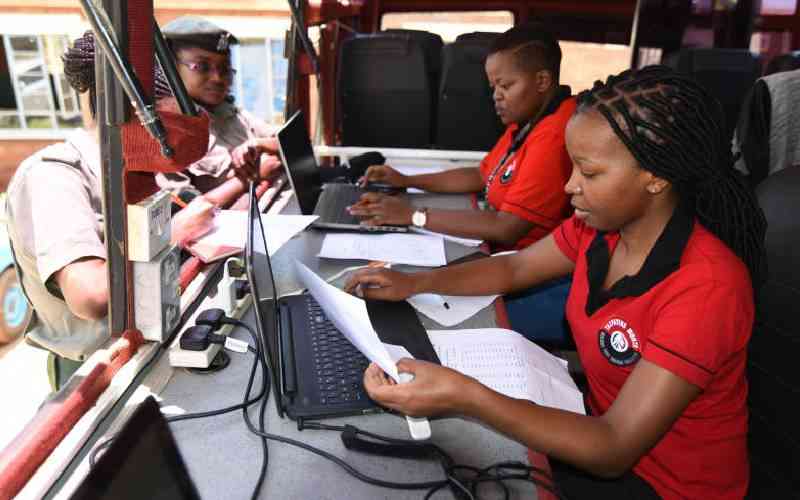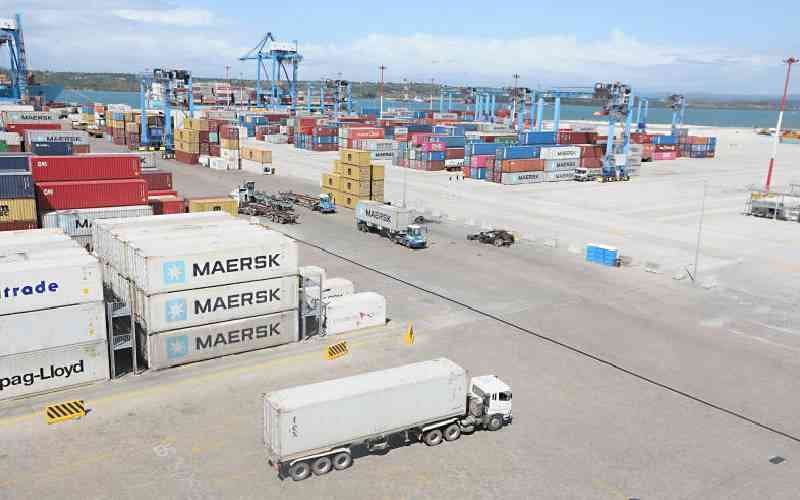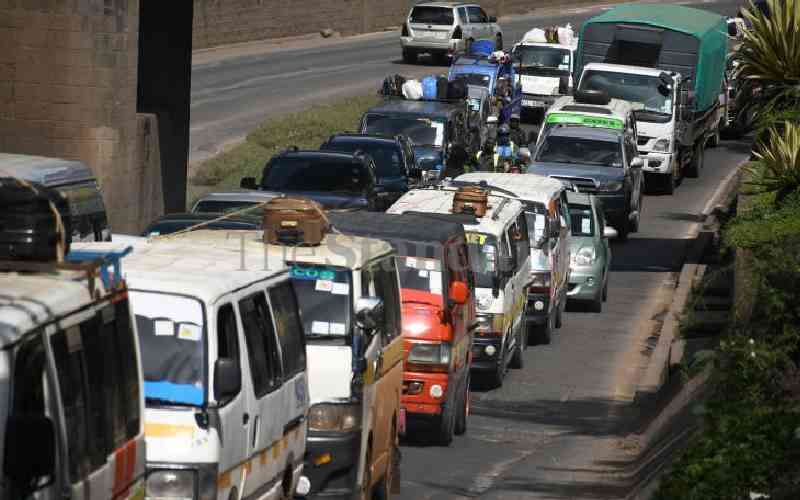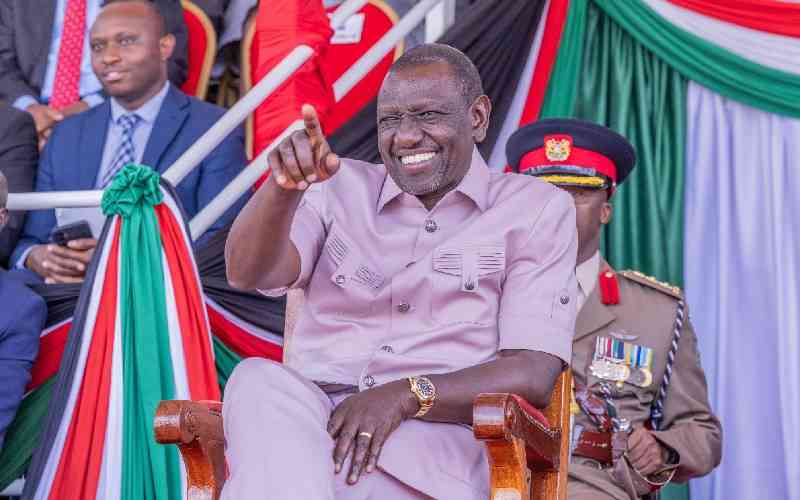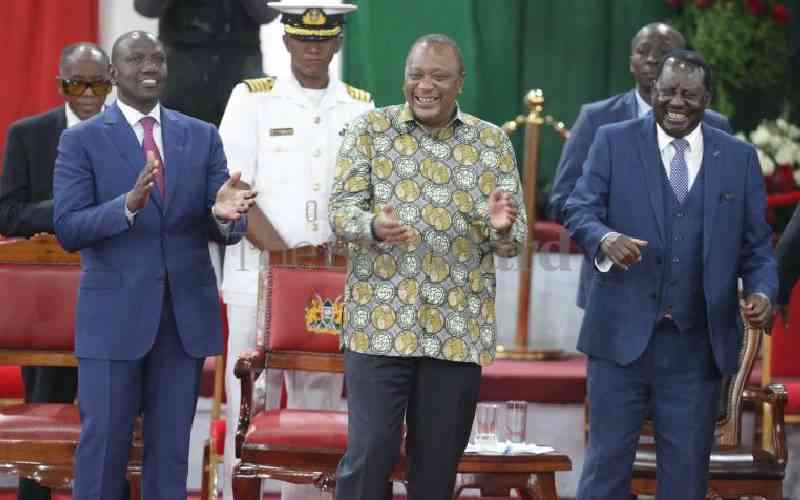Mombasa County Assembly has formulated two bills laying claim to part of the revenue collected from the Port of Mombasa.
The Mombasa County Port Authority Bill 2014 and Ferries and Harbours Bill 2014, is expected to put the county in a collision course with the Government.
Transition Authority has weighed in on the matter saying it is aware of the two draft bills and calling for consultation with a pledge to issue a comprehensive statement later.
The Ferries and Harbours Bill, 2014 seeks to introduce legislation to control vessels in the harbour and allow for revenue collection from vessels landing cargo.
“This legislative proposal is therefore intended to improve revenue collection as well as ensure safe operations of vessels within the habour,” the bill reads in part.
NEW MANDATE
The Mombasa County Port Authority Bill seeks to establish a body mandated to rival the national maritime regulator, Kenya Maritime Authority (KMA).
It also empowers the county government to establish an Advanced Shipment Information System (ASHI) for all ships calling or leaving the Port in order to secure relevant information on imported and exported cargo.
The ships will also be required to pay ASHI fee to the county government.
“All shipping lines shall confirm their unique ‘ASHI’ number on the corresponding bill of landing and cargo manifests issued in respect of cargo shipped to or from the port of Mombasa,” the bill in part.
The bill directs that a shipper who ships cargo without providing their ASHI information to the county port authority be liable to a penalty equivalent to 50 per cent of the gross freight cost of the cargo.
According to shipping expert, Stanley Chai, regulations of international trade is a function of the Government through KMA but the proposed bill grants the county rights to compete with KMAs mandate.
Mr Chai said under the proposed law, the harbour master would have powers to detain a vessel in the harbour until all monies due in respect of the vessel and the cargo have been paid or sufficient security has been given to the county.
Yesterday, Mombasa Governor Hassan Joho confirmed that consultations are now ongoing to ensure the two bills do not contravene the constitution.
“We want to make sure we pass bills which cannot be challenged by anybody in the court of law,” he said.
Stay informed. Subscribe to our newsletter
However, outgoing Kenya Ports Authority (KPA) Chairman Danson Mungatana opposed the move saying it goes against the Government’s stand that the Port is a national asset whose revenue can only go to Treasury.
Mungatana warned the county government against rushing the two bills in question before undertaking extensive consultations with other Government agencies.
KPA Managing Director Francis Gichiri Ndua said he is not aware of the two bills’ existence.
“I am not in a position to comment on the bills until I see them but I will also seek advice from our legal department,” he said.
The bills have received support from the county assembly’s Public Works and Transport Committee Chairman, Murfad Amur.
“The Mombasa County Port Authority Bill 2014 is driven by the need to have a body that will oversee collection of revenue in matters related to transport and shipping which will in turn improve the County government’s revenue,” he said.
HARBOUR CHARGES
Mr Amur said once the county port authority is established, it will help organise and ensure the parking of heavy vehicles, lorries and trucks by establishing a marshalling yard, in consultation with KPA, and also collect parking fees.
The county authority is also expected to impose harbour charges to cater for various activities undertaken at the port.
A vessel owner, entering the harbour to offload goods, will be required to give notice to the harbour master of his intention and the quantities he is carrying “for the purpose of calculation of the harbour charges payable in respect of such landing of goods.”
Mombasa Senator Hassan Omar has also weighed in on the matter saying; “the bills in question are not illegal. It is the National Government which is supposed to initiate them but if it has failed to initiate them then there is nothing wrong with the county government taking the lead.”
Omar said the county had not contravened the constitution by drafting the bills saying devolved units have the right to initiate such bills to enable it collect revenue for its devolved government.
“I am supporting the Mombasa county government 100 per cent on its decision to introduce these bills” he said.
Kenya Ferry Services Managing Director Hassan Musa Hassan said he was not consulted during drafting of the Bill and refused to comment further instead referring our questions to the Government’s Ministry of Transport and Infrastructure.
Even before this brewing storm settles, reports now indicate that five other counties including Kisumu and Turkana with water bodies are planning legislation to slice away some of the billions generated by what are, popularly, though to be national maritime resources.
 The Standard Group Plc is a
multi-media organization with investments in media platforms spanning newspaper
print operations, television, radio broadcasting, digital and online services. The
Standard Group is recognized as a leading multi-media house in Kenya with a key
influence in matters of national and international interest.
The Standard Group Plc is a
multi-media organization with investments in media platforms spanning newspaper
print operations, television, radio broadcasting, digital and online services. The
Standard Group is recognized as a leading multi-media house in Kenya with a key
influence in matters of national and international interest.
 The Standard Group Plc is a
multi-media organization with investments in media platforms spanning newspaper
print operations, television, radio broadcasting, digital and online services. The
Standard Group is recognized as a leading multi-media house in Kenya with a key
influence in matters of national and international interest.
The Standard Group Plc is a
multi-media organization with investments in media platforms spanning newspaper
print operations, television, radio broadcasting, digital and online services. The
Standard Group is recognized as a leading multi-media house in Kenya with a key
influence in matters of national and international interest.

